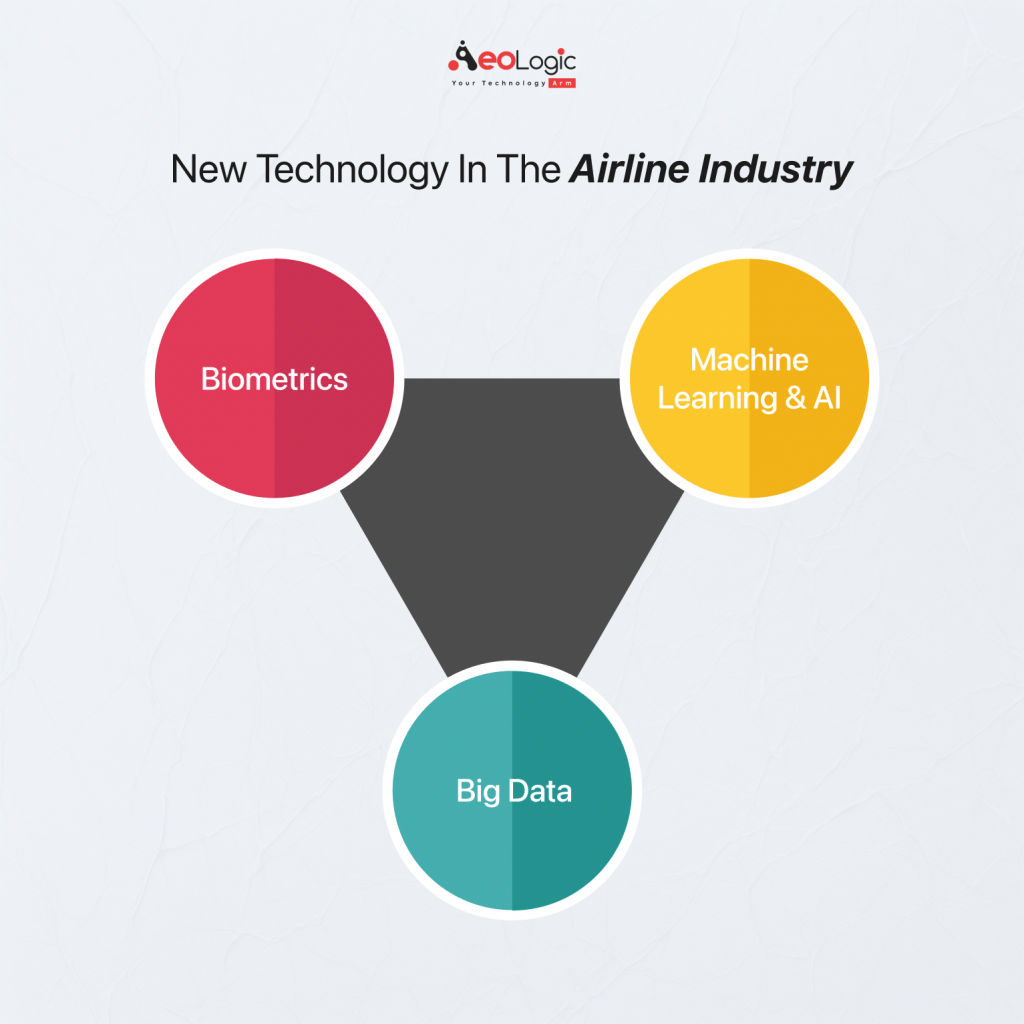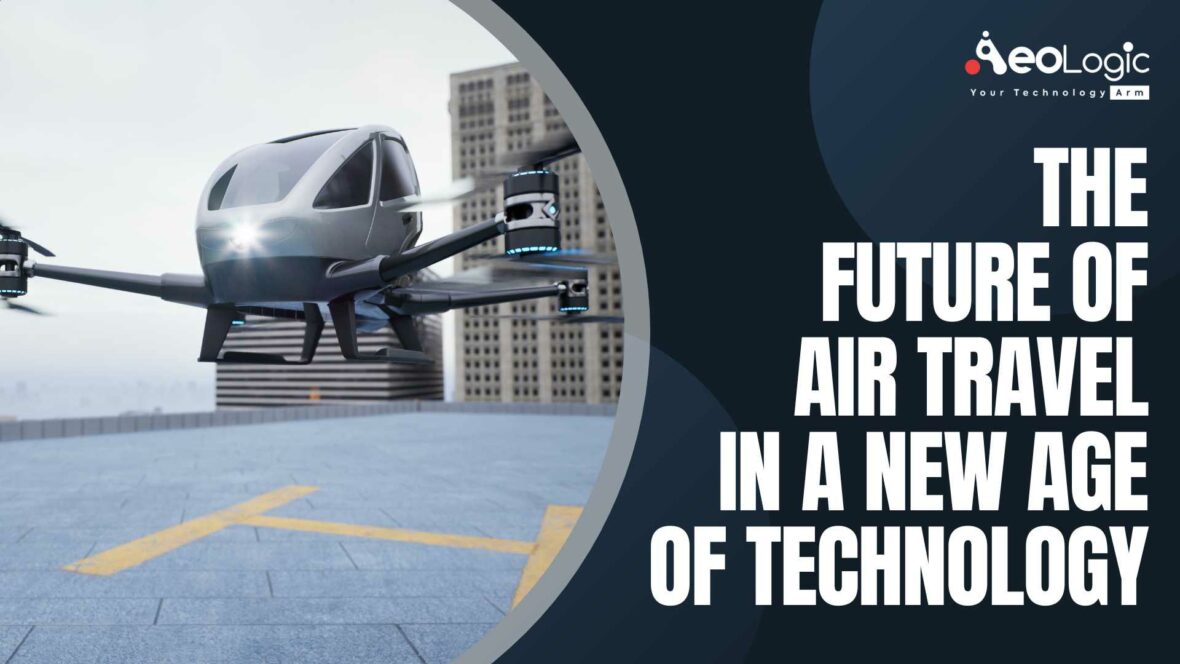As technology becomes more advanced, the way we do things will change. One such area where this is happening is air travel. The article discusses a few topics that have changed, or are changing, due to technology and how it’s affecting air travel.
Have you been following the latest developments in air travel technology? Air travel is evolving and transportation companies are introducing a lot of new technologies to make this form of transportation faster, safer, and more enjoyable.
The aviation industry is about to be hit by the next disruptive technological change.Select
Air travel used to be a luxury reserved for the wealthy and privileged, but as the world has become more globalized, we’ve seen air travel grow from a novelty to an everyday essential. But what will the future of air travel be like? Experts say that in a new age of technology, air travel may not even be necessary.
Let’s begin!
Table of contents
- What is the Future of Air Travel?
- How Will Technology be Integrated into Air Travel?
- What are some Implications of New Technology in the Airline Industry?
- Conclusion
Also Read: The Role of AI in Education And Learning: Just Promises Or Revolution
What is the Future of Air Travel?
The future of air travel is shrouded in potential but fraught with uncertainty. But despite the challenges that lie ahead, there is reason to be optimistic about the future of air travel.
Air travel has come a long way in a relatively short period of time. In 1903, the Wright brothers made history with the first powered flight. Just over 50 years later, jet engines were powering commercial aircraft, and air travel had become an integral part of our lives. Today, we take for granted the fact that we can board an airplane and be whisked away to our destination in a matter of hours.
But what does the future hold for air travel? That’s a difficult question to answer, as there are so many variables at play. But one thing is certain: technology will continue to play a major role in shaping the future of air travel.
For example, we’re already seeing the rise of electric aircraft. These planes are quieter and produce far fewer emissions than their traditional counterparts. As battery technology continues to improve, it’s likely that electric aircraft will become increasingly viable in the coming years.
We’re also seeing new developments in autonomous flying technologies. These could potentially revolutionize air travel, making it safer and more efficient than ever before. Imagine being able to take a nap on your flight while your plane flies itself!
Of course, these are just a few examples of the many exciting innovations that are currently in development. It’s impossible to know exactly what the future of air travel will look like. But one thing is for sure: it’s going to be fascinating to watch.
Also Read: How RFID Solutions Help in Inventory Management
How Will Technology be Integrated into Air Travel?
Technology has always played a role in air travel, from the Wright brothers using wind tunnels to test their airplane designs to the use of computers to help land today’s jets. The next few years will see even more changes as new technology is developed and tested for use in aviation.
One area that is seeing a lot of development is aircraft design. Computational fluid dynamics (CFD) is being used more and more to design better-performing airplanes. This technology allows for the testing of different designs without having to build physical prototypes, which can save a lot of time and money.
Another area where technology is being integrated into air travel is in the cockpit. Cockpit displays are becoming more advanced, giving pilots access to more information than ever before. In addition, many planes are now being equipped with head-up displays (HUDs), which project important information onto the windshield so that pilots can keep their eyes up and look outside.
Air traffic control is another area where new technology is making a big impact. The Federal Aviation Administration (FAA) is working on a new system called NextGen that will make use of GPS tracking to help manage air traffic. This will allow for more efficient routing of aircraft, helping to reduce delays and congestion.
Technology will also play a role in making air travel more sustainable in the future. Electric aircraft are being developed that could one day replace traditional planes powered by fossil fuels. These planes would be much quieter and produce far less
What are some Implications of New Technology in the Airline Industry?

The airline industry is on the cusp of a new era of technological advancement. This new age of technology will bring with it a host of implications for the way airlines operate. Perhaps the most significant implication is the way in which new technology will impact the safety and security of air travel. With new developments in aircraft tracking and communication, there will be a greater ability for airlines to monitor their fleets and ensure that flights are safe.
In addition, new technologies will also lead to more efficient and cost-effective operations for airlines. For example, automated check-in and boarding procedures will save time and money.
Also Read: The Role of AI in Education And Learning: Just Promises Or Revolution
Let us try to imagine how the aviation industry will appear in the following years:
Biometrics
Facial recognition, fingerprint authentication, and retina scanning are just a few examples of biometric technologies that will replace traditional methods of verification. Eventually, the full verification process will be conducted digitally thanks to the widespread use of biometric technology for use in airport check-ins, onboarding, and migration procedures. Passengers will be able to monitor the status of their bags in real time thanks to this feature’s expansion into the baggage claim area.
Machine Learning & AI
Research shows that the market for AI in the aviation industry would grow at a CAGR of 46.4% between 2017 and 2023. Aiming to maximize passenger happiness, AI is being utilized to provide a uniquely tailored travel experience. Digital interactions between airlines and passengers are becoming more individualized, optimized, and scalable thanks to AI. The airline sector is benefiting from the application of AI and ML to passenger feedback in order to better tailor its offerings to individual customers.
Big Data
The trend toward data democratization is enabling businesses to make fact-based strategic decisions. Big data, together with AI and ML, is allowing businesses to better anticipate and prepare for consumer behavior. With data fast becoming the digital age’s most prized possession, it makes sense to use data mining tools to design a foolproof strategy.
Finally, the introduction of new technology will also change the customer experience, with passengers able to take advantage of digital tools to make their journey more comfortable and enjoyable.
Also Read: Why Is CRM Software a Game-changer When It Comes to Delivering Better Customer Experiences?
Conclusion
With the advancements in technology, the future of air travel looks very promising. We can expect to see faster and more efficient planes that are able to fly longer distances. Additionally, new technological innovations will make flying safer than ever before. With all of these exciting developments, it’s safe to say that the sky is the limit for the future of air travel.
If you are interested in elevating your businesses using technology, connect with our industry experts at Aeologic Technologies.
Also Read: 10 Ways to Use Artificial Intelligence to Improve Business Processes
Related Blogs:
- How AI/ML Can Change the Public Transportation Industry
- Transforming Business With Digital Technology in the Oil Palm Industry in India
- Importance of Digital Asset Management in the Retail Industry
- How AI is Transforming the Agriculture Industry
- 10 Ways to Use Artificial Intelligence to Improve Business Processes
- The Future of IoT Technology in Convenience Stores
- Building Manufacturing Resilience Through AI and ML






